Published on October 19, 2020
Note from the Co-Directors
Dear Friends,
Welcome to I-GMAP’s October 2020 Newsletter. This is the first of what will be a regular series of monthly newsletters designed to provide you with an easy-to-use and convenient way of keeping informed about the range of events, programs, guests and opportunities at I-GMAP in the month ahead. We’re hoping that you will find these monthly newsletters a helpful resource.
As you will see, the listings for events reflect the continuing work of adapting the Institute’s many activities into an online format as, like everyone, we adapt to the current constraints imposed by the novel coronavirus. This month we introduced a new regular webinar series bringing expert practitioners and academic researchers together to discuss urgent topics in the wide landscape of atrocity prevention.
Given our current realities, our inaugural October event, assessing the effective shutdown of asylum rights for refugees at the United States-Mexico border, seemed to us a highly appropriate way to launch this series. We need to affirm that the work of diagnosing and speaking out against systematic human rights violations – recognized warning signals of enhanced atrocity risk - cannot be directed only outwardly toward other countries. More than ever, we are committed to prevention efforts in our own nation.
Over the coming months, please look out for regular announcements for upcoming webinars that will introduce you to experts working on atrocity prevention efforts globally. We hope to be able to welcome you and get your feedback and suggestions for additional topics.
Despite changed plans and rescheduled resident practitioners, the Institute will be staying very busy over the months ahead, with a full schedule of online events. We hope to see you soon!
-Max Pensky & Nadia Rubaii
Announcing the First Cohort of Charles E. Scheidt Faculty Fellows in Atrocity Prevention!
We are very excited to share the news about the first cohort of Charles E. Scheidt Faculty Fellows in Atrocity Prevention for the 2020-21 academic year. This program builds upon the GMAP Curriculum Development Program, which we provided since 2018.
We received great applications and cannot wait to begin working with the selected group, both because of the new representation from the School of Management and the Thomas J. Watson School of Engineering and Applied Science that this cohort brings to our network and because of the diversity of important topics about which these faculty teach and do research. They will provide an array of courses for students at the graduate and undergraduate levels and will help us delve deeper into some key aspects of prevention where we haven’t previously had the specialized expertise. These faculty members will join a growing cadre of faculty across Binghamton University who are incorporating atrocity prevention into their teaching and, in some cases, into their research as well. We will now have members who have participated in this program from every college/school at the University that provides master’s level coursework.
They will participate as a group in some synchronous meetings/workshops with us and past participants throughout the year, and thanks to our Dr. Kerry Whigham’s, assistant professor of genocide and mass atrocity prevention, work they will individually complete self-paced online modules in the spring. By next year, we intend to have this program ready to open up to the broader SUNY community in the form of micro-credentialing.
Each year we have found the variety of disciplines represented by the participants greatly enriches the discussions of both atrocity prevention and pedagogy, and we are looking forward to a process of mutual learning again this year. This year the group will consist of the following individuals (listed alphabetically):

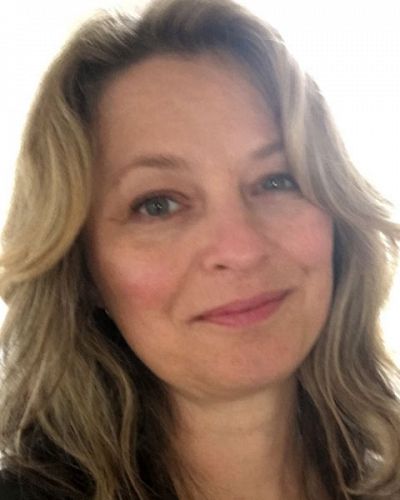
Birgit Brander Rasmussen
Associate Professor
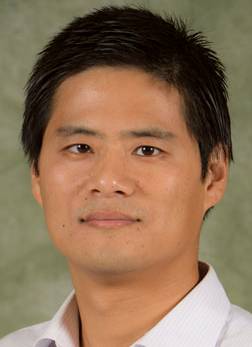
Changqing Cheng
Associate Professor
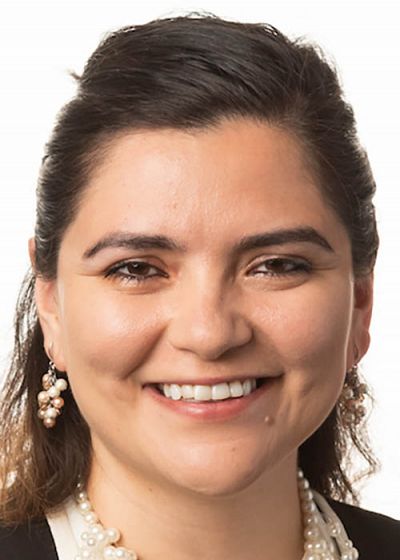
Melissa Zeynep Ertem
Assistant Professor
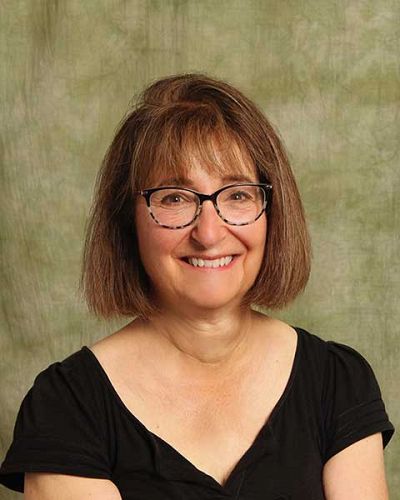
Jennifer Gordon
Associate Professor
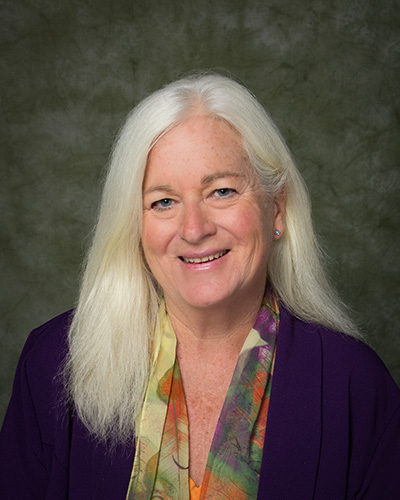

Bryan Kirschen
Associate Professor; Associate Professor; Chair of Romance Languages; Associate Professor of Spanish Linguistics
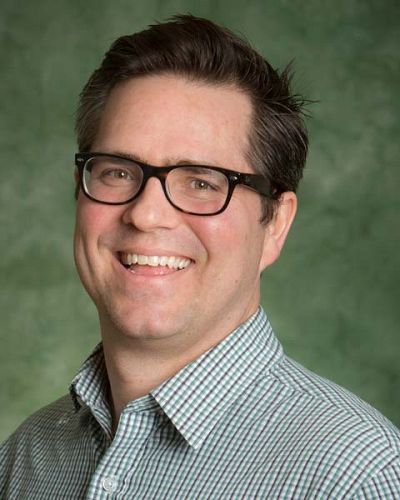
Matthew L. McConn
Associate Professor, Executive Assistant Dean; TRIP Courtesy Title
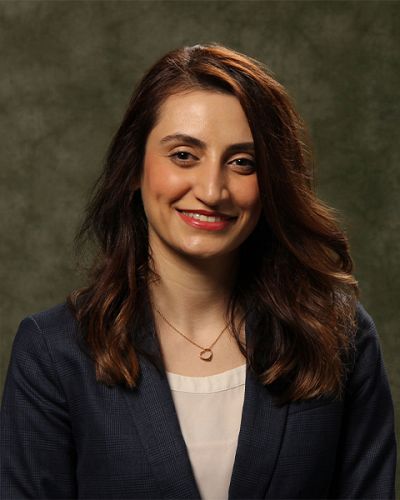
Saeideh Mirghorbani
Assistant Professor
Upcoming Events
Virtual Screening and Talkback with Producers of “The Lesson”
We will host a screening of the documentary, “The Lesson” on Monday, November 9th. The makers describe the film as, “the personal journey of director Elena Horn who returns to her small hometown to follow four children as they experience Holocaust education in the public school system in rural Germany. Filmed over five years, from 2014 to 2019, the film is a window into deeply rooted social and political attitudes in Germany amidst the resurgence of the far-right, xenophobia and a fractured, disparate collective memory of the nation’s history.”
After sharing the link to watch the film on your own from 3:30pm to 4:30pm EST, we will gather with the producers of the documentary for a moderated question and answer session from 4:30pm to 5:30pm.
Prior registration is required in order to watch the film and join the talkback session. View more about this film on their website.
Fall 2020 Atrocity Intervention Simulation Exercise
In 2019, we hosted the first Atrocity Intervention Simulation Exercise at Binghamton University and this year we are bringing the event back to campus. Although we cannot be in person physically, we look forward to holding the event virtually. We know that this is very different that last semester's simulation, but we look forward to making it just as rewarding.
The simulation will provide both a practical atrocity intervention learning experience and serve as a laboratory for decision-making and conflict analysis. Students are divided into six groups, with each group acting as a different international actor in the simulated conflict. Over the course of six rounds of the simulation exercise, students assess information in real time through life-like materials, articulate a series of multidisciplinary policies and programs aimed at trying to nudge the country away from conflict and deal with the immediate and longer-term aftermath of the conflict. Between each round of play, all participants meet together in the main Zoom room for a shared assessment. Each team will have two advisors present for all rounds. Advisors will be working with groups as they digest new information, revise their risk assessments and conflict mapping, revisit their policy options and preferences, and decide whether to share information with other teams.
Learn more about the Fall 2020 Atrocity Intervention Simulation Exercise on that part of our website.
Recent News
I-GMAP Webinar: The US Southern Border as an Atrocity Prevention Site
On Wednesday, October 14 from 3:00pm to 4:30pm EDT, we held our first webinar to discuss the US Southern Border as an Atrocity Prevention Site. Over 125 participants joined the session, what a great start to our series!
American law and politics have combined with the plight of central and south American refugees to transform the US-Mexico border into a lethal zone. Thousands of refugees have died in attempts to cross into American territory; thousands more have been arrested, detained, separated from their children, and in many instances imprisoned in state and federal facilities under conditions that may constitute violations of international law. American immigration and criminal law have effectively combined to form a distinctly new and lethal form of "crimmigration law," one that sees refugees primarily as criminals deserving of imprisonment.
Has America's southern border become an atrocity prevention site? This webinar of distinguished legal specialists and border activists explored this and related questions: how do existing federal policies and agencies change when we see them through an "atrocity prevention lens?" What mechanisms and approaches for atrocity prevention familiar from other contexts are valuable transferred to the US southern border? How can protection of and advocacy for refugees draw on the tools of atrocity prevention in their work?
Panelists:
Yael Schacher, Senior U.S. Advocate, Refugees International
Yael Schacher is senior U.S. advocate at Refugees International in Washington D.C., where she focuses on asylum, refugee admissions, temporary protected status, and humanitarian visas. Most of her recent reports for Refugees International have focused on U.S. border policies that put asylum seekers at risk of harm. Prior to joining Refugees International, Yael worked on her forthcoming book about the history of asylum in the United States as a postdoctoral fellow at the Institute for Historical Studies at the University of Texas at Austin. Before that she spent several years teaching about immigration at the University of Connecticut and volunteering at the legal services office of the Connecticut Institute for Refugees and Immigrants. She has an M.A. in History and a Ph.D. in American Studies from Harvard University.
María Angélica Montesinos, Program Coordinator, Asylum Access
María Angélica Montesinos is a Program Coordinator at Asylum Access, a nonprofit that provides life-changing legal services to thousands of refugees per year. With 7 years of experience as a litigator in civil and family law, María is responsible for overseeing the local offices in the north and south of Mexico as well as overseeing the Department of Strategic Litigation.
Shannon Fyfe, Assistant Professor of Philosophy, George Mason University
Shannon Fyfe is an Assistant Professor of Philosophy at George Mason University, where she is also a Fellow in the Institute for Philosophy and Public Policy, and an Adjunct Professor at the Antonin Scalia Law School. She holds both a Ph.D. in philosophy and a J.D. from Vanderbilt University. Her main research interests are in legal philosophy, ethics, and political philosophy, with a particular focus on mass violence and international conflict.
César Cuauhtémoc García Hernández, Professor of Law, University of Denver
César Cuauhtémoc García Hernández is a professor of law at the University of Denver and author, most recently, of Migrating to Prison: America’s Obsession with Locking Up Immigrants. He has published opinion articles in The New York Times, Los Angeles Times, and The Guardian, among others. A Fulbright Scholar Award recipient, he is also of counsel at García & García Attorneys at Law, PLLC.
Moderator: Max Pensky, Co-Director, Institute for Genocide and Mass Atrocity Prevention, Binghamton University
AD Stephen Capobianco Presents on “Expanding Our Understanding of Societal Mechanisms for Genocide Prevention”
Dr. Stephen Capobianco, assistant director of I-GMAP, virtually presented on "Expanding Our Understanding of Societal Mechanisms for Genocide Prevention" at the International Network of Genocide Scholars's annual International Conference on Genocide. He provided an overview of the current status of national mechanisms for the prevention of genocide and other mass atrocity crimes and explored other current approaches to genocide prevention. This included various actors in different levels of government, civil society, and private enterprise and across sectors. Through a multi-level structural analysis Stephen questioned a dominant paradigm that state actors are the main players in developing comprehensive tools to address atrocity risk factors. He concluded with suggestions for a research agenda that examines the dynamics of developing mechanisms, the role of international organizations, and the relationships between state institutions and civil society initiatives and between national and regional mechanisms.
I-GMAP in the News! "This ‘Hero Rat’ Is Saving Cambodia, One Landmine at a Time" by VICE World News
Our very own Charles E. Scheidt Postdoctoral Fellow, Dr. Darcie DeAngelo was interviewed for a VICE World News story!Read the full article, This ‘Hero Rat’ Is Saving Cambodia, One Landmine at a Time, on VICE World News.The news article on Magawa, the landmine clearing rat, mentions Darcie's interesting research, which explores how the use of rats to clear ordinance in Cambodia is changing the culture of mine clearance.As quoted in the article, Darcie says, “Magawa’s story touches us and shows us that even the littlest of creatures can work towards peace.”
Dr. Jenny Escobar Joins Antiracist Conversation Online
On September 10, 2020, our Charles E. Scheidt Postdoctoral Fellow, Jenny Escobar, participates in an intercultural and multigenerational dialogue on antiracism sponsored by Generaciones de Acción and Fundación Guagua.
The title of the event is "Anti-racist Journey: A series of Intercultural and Multigenerational Dialogues" (translated from Spanish, event is in Spanish only).
In Dr. Escobar's words, "in this series of Antiracist Dialogues for the Latinx, Latin American Spanish speaking community, we will be examining the ongoing violence against the Black community in Latin America and US, highlight the implications of this violence for the diverse racialized groups that exist within Latinx/ Latin America, and continue to develop a vision of Anti-racism practices and commitments that centers the leadership of Afro-Latinx/Latin American diaspora. I will be speaking on how we can use memory and transformative justice practices to help us embody an Antiracist vision. I will be accompanied by colleague and friend, Edgardo Mosquera Forero who is co-founder of Fundacion Guagua, an organization leading the Movement for Memory for survivors of state violence in Cali, Colombia; Janet Quezada, a Afro-Dominican writer and organizer who will be sharing about her journey creating a vision for the Black, Queer, Immigrant community in the United States, and Patricia Veliz who is the co-founder of Generaciones en Accion, an intergenerational organization providing education for the immigrant community in LA."
One of I-GMAP's First Charles E. Scheidt Postdoctoral Fellows Presents at Virtual Conference in Japan
On a early September 1st morning in Kobe, one of this year's two Charles E. Scheidt Postdoctoral Fellows, Dr. Darcie DeAngelo virtually presented her paper, "Peace, Karma, Food: Montage as ethnography in a Cambodian minefield," at the Association for Asian Studies. Given the time zone difference, her presentation was at 8:45PM EDT, Monday, August 31st. Her presentation was a part of a broader panel entitled, "Shifting Technologies, Mines, & Rituals of Relatedness: A Multimedia Montage of Post-war Cambodia and Laos." The abstract from the conference states:
Millions of landmines lie buried in Cambodia. In the minefield, potential violence infuses stable ground and human steps with risk. A walker can never tell whither or whether an explosive will detonate. When the ground has been rendered unstable, human desires for development are clarified. Animals represent certain desires for food, karma, and peace. To attend to ecological entanglements even in anthropocentric institutions, Peace, Karma, Food is a multiscreen exhibition with three videos that shift the point of view from human to animal for animal-human relationships related to important aspects of human life: farming, faith, and violence. The title refers to the human uses of the animals projected. The project plays at the boundary between anthropology and art, juxtaposing moments from Cambodian minefields. We see a cow in the small farm of a man who lives in a heavily landmine-contaminated village. We watch a bird being released for good karma. We follow a landmine detection rat detect explosives. The montage illuminates how religion, agriculture, and minefields are more ecologically entangled than we imagine. A reading will accompany this montage to further layer it. The reading discusses montage as a methodological framework for ethnography. While in the field, montage allowed unexpected relationships to emerge. The paper draws from juxtapositions of multiple fieldwork materials from visuals, narratives, and sensorial sources (such as audio and touch). I focus on exemplary moments of montage from the field in the reading, allowing the senses to bridge across these juxtapositions, revealing unnoticed parallels and exciting connections.
Publications by I-GMAP Team
Two peer-reviewed publications have been released this past month by members of the I-GMAP team. Check out our list of recent publications on our website.
Expanding the reach of representativeness, discretion and collaboration: The unrealized potential of public administration research in atrocity prevention.
Appe, S., Rubaii, N. and Whigham, K. (2020). Expanding the Reach of Representativeness, Discretion and Collaboration: The Unrealized Potential of Public Administration Research in Atrocity Prevention. Public Administration Review. Advance online publication: http://dx.doi.org/10.1111/puar.13296
Abstract:
Mass atrocities constitute a “wicked” problem that warrants greater attention from public administration scholars. The role bureaucrats have in committing or contributing to mass atrocities is well documented, yet bureaucrats also have the potential to play crucial roles in stopping current, preventing future, and responding to past atrocities. Despite the central role of public administrators in mass atrocities and prevention, public administration scholarship is largely silent on such topics, effectively ceding this problem to other disciplines and professions. Using three pressing challenges facing atrocity prevention practitioners and scholars as examples, this article illustrates how public administration theories and public administrators in practice can contribute to prevention by focusing their attention on upstream (before conflict) stages. The overarching goal is to frame atrocity prevention in terms that will resonate with public administration scholars while also providing a roadmap for the field's engagement with these issues.
The public administration imperative of applying an atrocity prevention lens to COVID-19 responses: Leveraging the global pandemic for positive structural change and greater social equity.
Rubaii, N., Whigham, K., and Appe, S. (2020). The public administration imperative of applying an atrocity prevention lens to COVID-19 responses: Leveraging the global pandemic for positive structural change and greater social equity. Adminstrative Theory & Praxis, online first. doi: 10.1080/10841806.2020.1829260
Abstract:
The pandemic is already forcing many individuals, businesses, and governments to rethink much of what they do and how they do it. As such, it presents an opportunity for public administrators to reimagine the criteria they use when designing and implementing programs and policies, and to more actively engage in prevention of identity-based violence. In this contribution, we suggest a new analytical lens to guide public administrators’ decision making, one informed by the theory and practice of mass atrocity prevention. This perspective recognizes that the decisions and actions of public administrators in response to the pandemic will influence whether individual countries and the global community writ large will be at increased risk of mass atrocities or if they will be more resilient and better positioned to prevent such atrocities. The COVID-19 pandemic represents both an imperative and an opportunity to reduce risks of mass atrocities, and public administrators have a vital role to play in this process.
If you would like to subscribe to our newsletter, please email us at igmap@binghamton.edu
